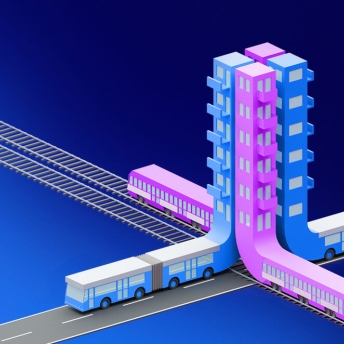Mickael Tauvel
Mickael mainly supports clients active in the travel & transportation sector in tackling challenges related to market entry, business model (re)definition and growth strategy.

Education
Past Experience

Mickael is a Partner based in the Paris office and a member of the “Strategy & Organization” and “Travel & Transportation” Practices. His main fields of expertise include business planning, growth, and diversification strategy, offering (re)designs, and assisting operators and infrastructure owners in the rail, aeronautical, and public transportation industries with tendering processes.
Over the past years, Mickael has primarily supported the top management of large firms active in the transportation and travel industry in tackling challenges related to many forms of disruption: digitalization, evolution of the regulatory framework, new competitor entry, etc. Mickael has developed expertise around mobility (from public transport to long distance) by addressing key topics such as mobility-as-a-service (MaaS) and the development of low-cost offerings.
Mickael supports private equity funds and trade buyers in commercial due diligences and is also active in the sports industry.
Mickael holds an MSc in Management from ESSEC Business School and a Master’s in Economy from La Sorbonne University. He is fluent in French, English, and Spanish.

Paris 2024 Olympics

Making the shift



DRT: A key lever to bridge mobility gaps


Energy: New business pillar for transport infrastructure operators

TRANSFORMATION IN THE EUROPEAN USED CAR MARKET

End-to-end incident management in transport: A key driver of customer excellence

Mickael is a Partner based in the Paris office and a member of the “Strategy & Organization” and “Travel & Transportation” Practices. His main fields of expertise include business planning, growth, and diversification strategy, offering (re)designs, and assisting operators and infrastructure owners in the rail, aeronautical, and public transportation industries with tendering processes.
Over the past years, Mickael has primarily supported the top management of large firms active in the transportation and travel industry in tackling challenges related to many forms of disruption: digitalization, evolution of the regulatory framework, new competitor entry, etc. Mickael has developed expertise around mobility (from public transport to long distance) by addressing key topics such as mobility-as-a-service (MaaS) and the development of low-cost offerings.
Mickael supports private equity funds and trade buyers in commercial due diligences and is also active in the sports industry.
Mickael holds an MSc in Management from ESSEC Business School and a Master’s in Economy from La Sorbonne University. He is fluent in French, English, and Spanish.

Paris 2024 Olympics

Making the shift



DRT: A key lever to bridge mobility gaps


Energy: New business pillar for transport infrastructure operators

TRANSFORMATION IN THE EUROPEAN USED CAR MARKET

End-to-end incident management in transport: A key driver of customer excellence
More About Mickael
- ESSEC (France)MSc in Management
- La Sorbonne University (France)Master’s in Economy
- Bain & CompanyConsultant
